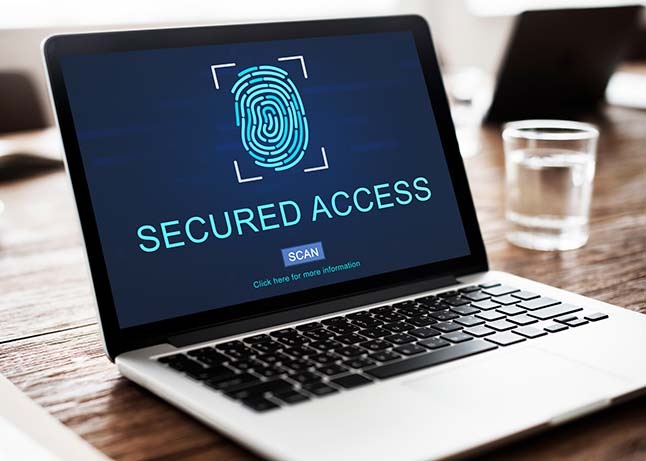
News, news analysis, and commentary on the latest trends in cybersecurity technology.
Beyond Identity co-founders hope to move the needle in eliminating the need for passwords, but experts say killing passwords altogether won't be easy.
January 26, 2021

A startup with the goal of eradicating passwords and led by Netscape founder Jim Clark and broadband network pioneer Tom Jermoluk today released a free version of its service that authenticates and authorizes users without the use of passwords.
The free version of Beyond Identity's service includes support from the company during business hours and deployment to an unlimited number of users or customers. Beyond's technology, based on X.509 for asymmetric key cryptography and TLS for encrypted communications, makes the endpoint device its own certificate authority.
The user's private keys, which are stored locally on the device's protected secure enclave section of memory, authenticate and authorize the user via Beyond's cloud-based service.
Password management headaches and credential theft have long been one of the biggest challenges to organizations, and layering passwords with multifactor authentication (MFA) and other protections has become the norm. But as the recent SolarWinds attack believed to be out of Russia demonstrated, attackers can bypass MFA in order to capture or set up credentials inside their targets.
Jermoluk, CEO of Beyond Identity, says the global pandemic and subsequent rush to send employees to work from home helped drive the decision to offer the startup's core technology for free to organizations. Cyberattacks rose last year, he notes, many of which targeted vulnerable and valuable credentials of work-from-home employees.
"This lets us contribute to companies who are having this [password security] problem today with their remote workforce," he says, and allows them to use it "forever," without the need to sign up for Beyond Identity's paid service.
"This is a piece of technology that solves a lot of problems, especially for SMBs [small and midsize businesses]," says Jermoluk. They don't need to manage any certificates or purchase any additional products to run it, he adds. "If you have Okta single sign-on, [for instance], you can turn [Beyond's service] on in 10 minutes," he says.
The passwordless authentication technology piece of its identity platform service is now available at no cost for organizations to connect to their single sign-on apps to eliminate passwords, and for website or app providers to offer visitors or customers to their site or apps.
Even so, Jermoluk emphasizes that the free version is not its "full-on product," but it does allow organizations to remove passwords and the associate risks that the aging authentication model brings. He says the goal is to usher in the passwordless era, where credentials aren't so easily and readily targeted and used to breach organizations and steal data.
Richard Stiennon, chief research analyst at IT-Harvest, says Beyond Identity's freebie offering makes sense and jibes with the co-founders' roots.
"The audacity of releasing a free product makes me take a breath: It reminds me of Netscape back in the halcyon days of the Internet bubble," he notes, in a nod to Clark's doing the same with the early Web browser. "This move should not have been a surprise. Also, it is what is required when there are so many identity solutions out there — 309 by my count."
Beyond Identity's advanced, or paid-tier, service includes authentication features that drill down on a device's security posture details and data; continuous authentication and risk policy enforcement; integration with mobile device management and endpoint detection and response (EDR) tools; integration with identity management, security, and compliance tools; compliance reporting features; and 24/7 support.
Cloud-based data platform provider Snowflake recently rolled out Beyond Identity's full product service to its thousands of employees for its business applications, including Gmail, Slack, and Salesforce. The company has no on-premise servers: Its IT environment is mainly Microsoft Azure and AWS, as well as SaaS apps, notes Mario Duarte, vice president of security at Snowflake.
Beyond Identity's passwordless service replaced Snowflake's password management tool and integrates with its Okta IDP. "It sits in front of Okta, and [Beyond Identity] takes care of authentication," Duarte says. Okta trusts Beyond Identity to confirm the user logging in is who they say they are, he adds.
Snowflake has requested that Beyond Identity add a couple of new features, including one that allows them to sign code.
When a programmer writes code and uploads it to Github or another code repository, Beyond Identity would allow that person to "sign" the code to authenticate it came from that programmer, he notes. Duarte says he thinks Beyond Identity will add that feature sometime in the first quarter of this year.
Whether Beyond Identity's freemium offer helps move the needle toward eradicating passwords is unclear. Security experts say passwords aren't likely to die anytime soon.
The company plans to add a consumer-level service that e-commerce or other organizations, such as gaming, insurance, or medical practices, can offer to their clients and customers, where there's no single sign-on like Okta sitting in the middle, Jermoluk says. "So anyone delivering a service function or app can offer a passwordless credential system," he says.
Meanwhile, Beyond Identity recently a $75 million Series B funding round, bringing its total investment to $105 million.
About the Author(s)
You May Also Like
The fuel in the new AI race: Data
April 23, 2024Securing Code in the Age of AI
April 24, 2024Beyond Spam Filters and Firewalls: Preventing Business Email Compromises in the Modern Enterprise
April 30, 2024Key Findings from the State of AppSec Report 2024
May 7, 2024Is AI Identifying Threats to Your Network?
May 14, 2024
Black Hat USA - August 3-8 - Learn More
August 3, 2024Cybersecurity's Hottest New Technologies: What You Need To Know
March 21, 2024